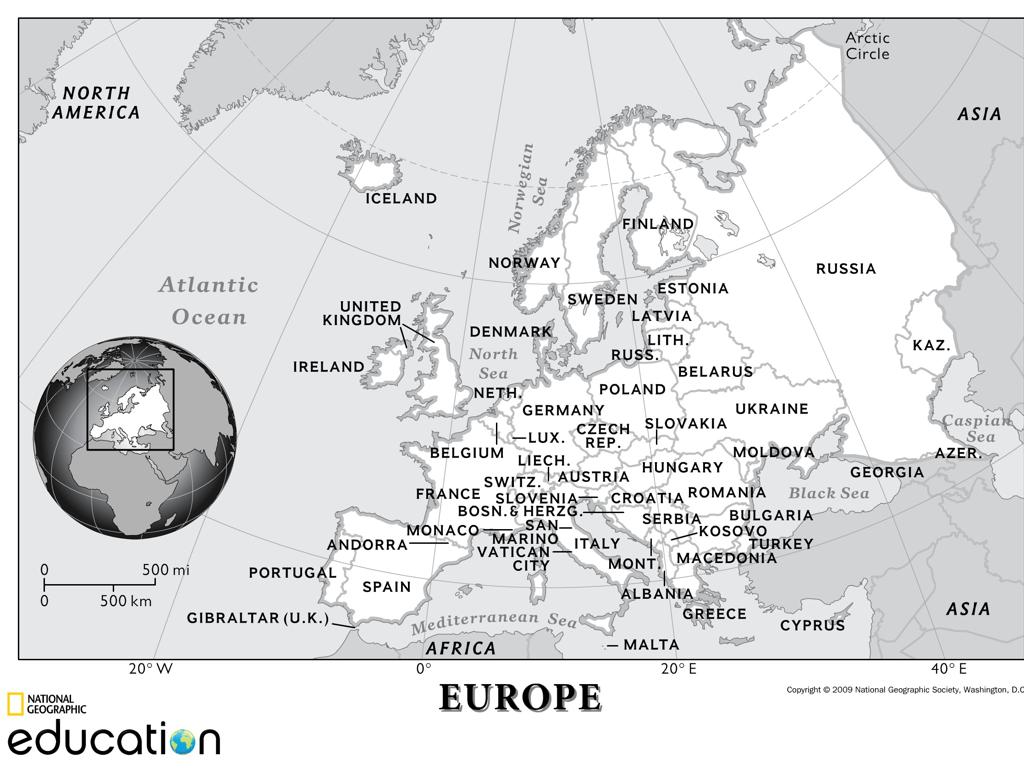Period 2: 1607-1754
Subject: Arts and humanities
Grade: High school
Topic: Ap /College Us History
Please LOG IN to download the presentation. Access is available to registered users only.
View More Content
AP US History: Colonial Era Overview
– Introduction to the Colonial Era
– Significance of the year 1607
– 1607 marks the establishment of Jamestown, the first permanent English settlement in North America.
– Major themes of Period 2
– Exploration, colonization, religious freedom, and conflict with Indigenous peoples.
– Understanding colonial dynamics
– Examine the social, political, and economic structures of the colonies.
|
This slide introduces students to Period 2 of AP US History, covering the Colonial Era from 1607 to 1754. It’s crucial to highlight the significance of 1607 as the year when English colonization in the New World began with the founding of Jamestown, which set the stage for future colonial endeavors and conflicts. Major themes include the motivations for exploration and colonization, such as the quest for religious freedom and economic opportunities, as well as the resulting interactions and conflicts with Indigenous peoples. Students should also understand the development of colonial governments, economies, and social structures, and how these elements laid the groundwork for the future United States. Encourage students to think critically about the varied experiences of different groups during this period, including European settlers, Indigenous peoples, and enslaved Africans.
Jamestown: The First Permanent English Settlement
– Jamestown’s establishment in 1607
– Founded by the Virginia Company for trade and profit.
– Settlers’ early challenges
– Faced starvation, disease, and conflicts with Native Americans.
– Tobacco’s role in survival
– John Rolfe’s tobacco cultivation led to economic success.
– Jamestown’s legacy in US history
|
Jamestown, established in 1607 by the Virginia Company, was the first permanent English settlement in North America. The settlers faced numerous challenges, including harsh conditions, starvation, disease, and conflicts with indigenous peoples. The introduction of tobacco cultivation by John Rolfe was a turning point for Jamestown, leading to economic prosperity and the establishment of a successful English colony. This settlement laid the foundation for the development of the Thirteen Colonies and the eventual birth of the United States. Discuss the significance of Jamestown in the broader context of American history and its lasting impact on the nation’s development.
Native American Relations: 1607-1754
– Early settler-Native interactions
– Initial trade and communication, often marked by mutual curiosity
– Colonization’s impact on Natives
– Displacement, disease, and cultural upheaval for Native societies
– Instances of cooperation
– Alliances formed for trade, intermarriage, and military purposes
– Examples of conflict
– Clashes over land, resources, and European expansion
|
This slide aims to provide an overview of the complex relationships between Native Americans and European settlers during the period of 1607-1754. Initially, there was a degree of cooperation and mutual benefit in trade and communication. However, as colonization intensified, Native American societies faced significant challenges, including displacement, the spread of diseases to which they had no immunity, and cultural disruption. Despite these challenges, there were instances where cooperation flourished, seen in trade alliances, intermarriage, and combined military efforts. Nevertheless, conflicts were inevitable, often erupting over competition for land and resources, as well as differing worldviews regarding land ownership and use. This period is marked by a dynamic interplay of cooperation and conflict, which would shape the future of the continent.
The Development of the Thirteen Colonies
– Regional differences in the colonies
– New England’s focus on religion, Middle’s diversity, Southern’s agriculture
– Colony lifestyles: Economic, social, political
– How people worked, lived, and governed themselves
– Expansion of slavery and its impact
– Slavery’s role in economy and society, and moral dilemmas
– Colonial development and diversity
|
This slide aims to explore the distinct characteristics and development of the Thirteen Colonies during the period of 1607-1754. Highlight the differences between the New England, Middle, and Southern colonies in terms of their founding principles, economic activities, and social structures. Discuss the various aspects of life in the colonies, including the types of work people did, the social hierarchies that existed, and the political systems they developed. Address the growth of slavery, its economic justifications, and the ethical issues it raised, which would later lead to significant conflict. Emphasize the diversity of experiences and the regional specializations that contributed to the unique development of each colonial area. Encourage students to consider how these early differences set the stage for future events in American history.
Colonial Government and Resistance
– Colonial governance forms
– Varied structures: royal, proprietary, and charter colonies
– Democracy’s roots in policies
– Town meetings, Mayflower Compact as democracy precursors
– Early resistance signs
– Acts of defiance, e.g., Bacon’s Rebellion, boycotts
– Dissent against British rule
– Growing unrest, questioning British authority
|
This slide delves into the governance of the American colonies and the early seeds of democracy and resistance that would eventually lead to the American Revolution. Discuss the different forms of colonial governance, including royal, proprietary, and charter colonies, and how these contributed to the development of self-governance practices. Highlight the significance of town meetings and the Mayflower Compact as early democratic elements. Explore early acts of resistance such as Bacon’s Rebellion and various boycotts, emphasizing how these reflected growing colonial dissatisfaction with British rule. Encourage students to consider how these events set the stage for later, more organized resistance efforts.
Religious and Cultural Growth: 1607-1754
– Religion’s impact on colonial society
– Religion influenced governance, social structure, and daily life in the colonies.
– The First Great Awakening
– A religious revival that reshaped Protestant beliefs and practices, fostering a sense of shared American identity.
– Cultural advancements in the colonies
– Art, literature, and philosophy flourished, reflecting the emerging American culture.
– The evolution of colonial education
– Education became more accessible, with the establishment of schools and colleges promoting literacy and learning.
|
This slide explores the significant role of religion and culture in the development of colonial society during Period 2. Religion was not just a personal belief system but a driving force that affected governance, laws, and community interactions. The First Great Awakening was a pivotal religious movement that not only transformed individual and congregational religious life but also contributed to a growing sense of unity among the colonies. Cultural developments during this period included the emergence of a distinctly American perspective in art and literature, while education began to lay the groundwork for an informed citizenry and future leaders. Discuss the long-term effects of these religious and cultural changes on American society, and encourage students to consider how these early developments set the stage for the American Revolution and the formation of the United States.
Economic Expansion and International Trade (1607-1754)
– Triangle Trade and mercantilism
– A trade system between Africa, the Americas, and Europe, exchanging goods and enslaved people.
– Growth of colonial industries
– Expansion of shipbuilding, iron works, and other industries due to abundant resources.
– Emergence of consumer culture
– Colonists began to purchase luxury items, showing wealth and status.
– Impact on colonial society
|
This slide explores the economic growth in the American colonies from 1607 to 1754, highlighting the Triangle Trade’s role in mercantilism, which was the prevalent economic philosophy of the time. It encouraged the accumulation of wealth through a favorable balance of trade. The rise of colonial industries was spurred by the natural resources and raw materials available in the colonies, leading to the growth of shipbuilding and iron works. This period also saw the beginnings of a consumer culture in the colonies, where colonists began to buy and display luxury items as a sign of wealth and status. Discuss the impact of these economic changes on colonial society, including social stratification and the development of a distinct colonial identity separate from Britain.
Colonial Perspectives: A Role-Play Debate
– Form groups to represent colonial figures
– Present views on colonial policies
– Engage in a moderated debate
– Discuss governance, economy, society
|
This class activity is designed to immerse students in the historical context of Period 2: 1607-1754 by role-playing different colonial perspectives. Divide the class into groups, each representing British officials, settlers, Native Americans, and enslaved people. Each group will research and present their character’s views on colonial policies, such as taxation, land rights, and trade. After presentations, conduct a moderated debate to explore the complexities of colonial governance, economy, and societal relations. This activity encourages critical thinking and empathy by understanding diverse historical viewpoints. Possible activities: 1) British officials arguing for taxation without representation, 2) Settlers demanding land and self-governance, 3) Native Americans defending their land rights and cultural autonomy, 4) Enslaved people advocating for freedom and human rights.






